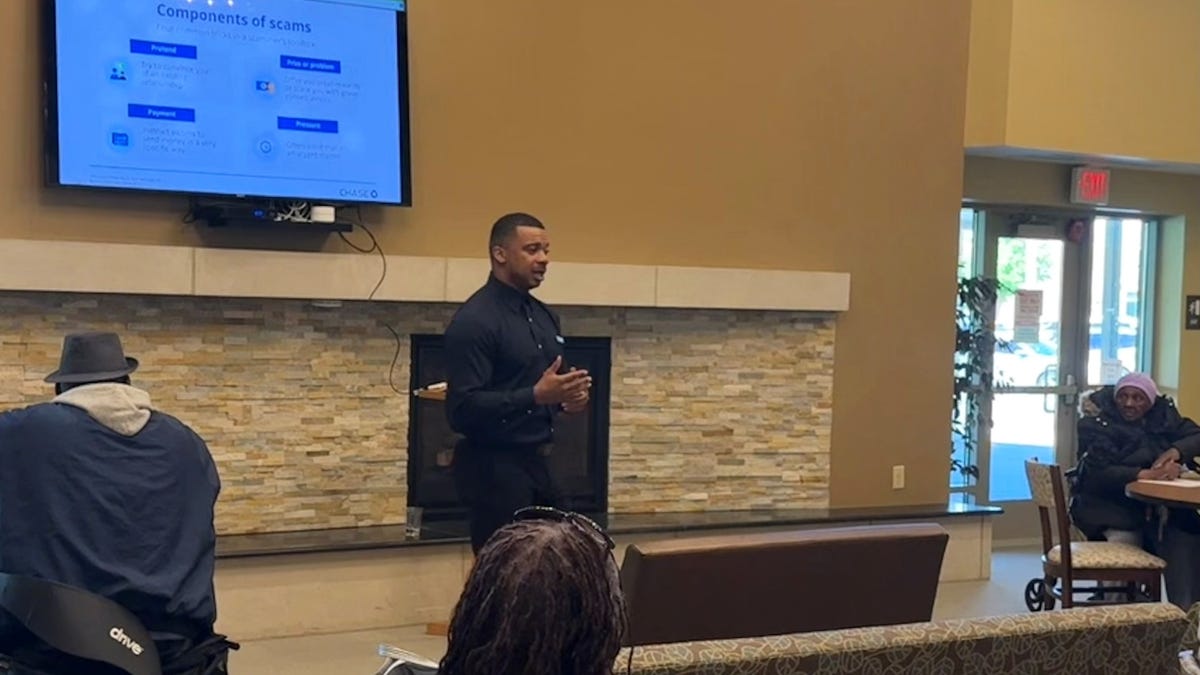Top headlines of the week, April 25 2025
Here are some stories you may have missed this week in central Ohio.
- Seniors are frequently targeted by scammers through various means of communication. Including AI deepfakes.
- Common scams include impersonation, tech support scams, romance scams, and prize scams.
- Families should discuss scams with seniors, showing them examples and helping them implement preventative measures.
It seems no matter where you turn — email, phone, snail mail, text messages — someone is trying to scam someone.
Whether it’s phony threats of unpaid tolls or the non-stop barrage of robocalls, seniors are an especially frequent target for scammers, Columbus police and bankers say, but there are ways they and their families can stay safe.
Columbus Division of Police Sgt. James Fuqua said that seniors are the most vulnerable group to fraud. They are more likely to believe that the communications they receive through mail, email, or phone are legitimate, and they tend to be less tech-savvy than their younger peers.
“it’s very easy for our seniors to receive a text message and click on a hyperlink and think that it looks legitimate, and before you know it, they’re providing all of their information, and it’s out there on the dark web, not long after,” Fuqua said.
The scams are especially tragic because seniors often have retired and live off their savings and benefits like social security, Fuqua said.
“If they are to lose their funds in a scam, they can’t recoup that,” Fuqua said. “In some cases, we’ve seen seniors lose entire life savings.”
At a presentation on April 29 at Pointdexter Place, an affordable housing community with residents 62 and older on Columbus’ Near East Side, Columbus police Economic Crime Unit Sgt. Chris Bond and Marlon Platt, a Community Manager with JP Morgan Chase, provided some tips seniors and their families can use to stay safe from fraud and scams.
What are the common ways people try to scam seniors?
Platt outlined several scams that seniors – and everyone else – should be on the lookout for.
Impersonation
Often, scammers will try to impersonate someone their target would trust, such as family, local law enforcement or a manager at their bank, Platt said. They can spoof phone numbers to appear to be calling from a trusted organization or mimic the email addresses of people at those institutions.
Platt said people should contact the supposed person or institution to verify if they received an unexpected call or email.
The National Council on Aging said AI also creates an emerging advantage for scammers who are using voice cloning technology and deepfake videos to impersonate authority figures and family members.
Virus scams
In virus scams, scammers call pretending to be a tech support employee and tell their targets there is something wrong with their computer, according to the Federal Trade Commission. Other times, fake pop-up windows try to convince would-be victims their computer has been infected with a virus, urging them to call a number or click a link.
There’s typically no actual virus, says the FTC. A legitimate tech company won’t contact you by phone, email or text to tell you about a problem with your computer, and security alerts from real tech companies won’t ask you to call a phone number or click a link.
Romance scams
Seniors are also sometimes targets of romance scams. Someone will pose as a love interest so they can convince their target to send money.
Fuqua said it’s best to FaceTime a potential romantic connection to make sure they are who they say they are. You can also look them up outside of your conversation with them to make sure they are a real person.
“It’s real easy to fall into that trap of believing that someone actually cares about you and actually wants to have a relationship,” Fuqua said. “I would strongly recommend you determine whether this is a real person.”
Fuqua said if there’s a true romantic connection, that person should not be right away asking for money or anything of value.
Prize scams
It’s common for scammers to reel in victims with promises of lottery winnings or luxury prizes. If you must pay money upfront – like for “taxes” or “shipping” – the prize isn’t real, says the FTC.
The tactics
Scammers usually impersonate someone else and work to create a sense of urgency. They convince their targets that they need to send money right away in a specific way, like Visa gift cards. Bond said that’s because some payment methods are less secure, making it harder for victims to recover their money.
Often, scammers will invent reasons for their target to stay on the phone to prevent them from hanging up and verifying details on their own, Bond said.
Joan Jones, a resident at Pointdexter Place, took copious notes during the presentation. Her daughter, who was visiting later that day, urged her to write everything down. She says she often receives scam texts and phone calls. She is suspicious of any unknown number that contacts her.
“I say, ‘who’s this person calling me?’”Jones said.
Fuqua said it’s best for the family member the senior trusts the most to approach them for conversations about scams and fraud. They can help them set up spam filters or set their phone to block unknown callers.
When they do have the conversation, they should take a hands-on approach, Fuqua said.
“So not just talking about it, but showing them,” Fuqua said. “Showing them on their computer. Showing them on their phone. Showing them examples of scams and certain situations that they could potentially be susceptible to.”
If a senior does fall victim to a scam, they should stop communicating with the scammer and contact the police, their bank’s customer service team, and also the National Elder Fraud Hotline (833-372-8311).
Public Safety and Breaking News Reporter Bailey Gallion can be reached at bagallion@dispatch.com.
Click Here For The Original Source.

